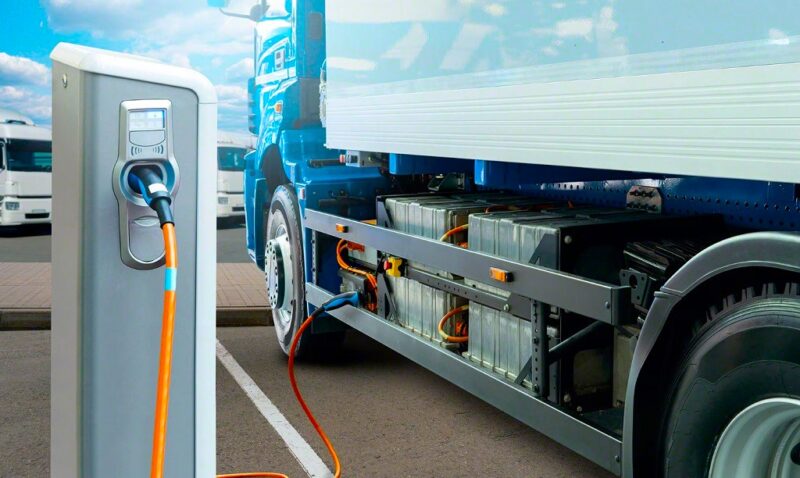The logistics industry, responsible for transporting goods across vast distances, is a significant contributor to global emissions. However, a promising solution is emerging: electric vehicles (EVs). Electrifying delivery trucks and vans have the potential to revolutionize logistics, paving the way for a cleaner and more sustainable future.
Why EVs Make Sense for Logistics
Electric vehicles offer several advantages that make them well-suited for logistics applications:
- Reduced Emissions: Unlike traditional gasoline-powered vehicles, EVs produce zero tailpipe emissions. This translates to cleaner air in urban areas, especially beneficial for deliveries within city centers.
- Operational Efficiency: EVs boast lower maintenance costs compared to gasoline vehicles. Electric motors have fewer moving parts, leading to reduced wear and tear. Additionally, regenerative braking systems in EVs can capture energy during deceleration, extending range and improving efficiency.
- Urban Maneuverability: Many delivery routes involve navigating busy streets and tight corners. Electric vehicles, often lighter and more compact than traditional delivery trucks, excel in such situations due to their superior maneuverability.
- Brand Building: Companies that adopt EVs can project a more environmentally conscious image, potentially attracting customers who prioritize sustainability.
EVs in Action: Last-Mile Delivery Takes Charge
The last mile refers to the final leg of a delivery journey, typically from a warehouse to the customer’s doorstep. This stage is ideal for EVs due to shorter distances and frequent stops. Many logistics giants are already testing and deploying electric delivery vans, proving their effectiveness in real-world scenarios.
Related: What are the 4 Possible Growth Strategies for Companies? Unleashing Growth Potential
Beyond Last-Mile: Electrifying Long-Haul Logistics
While last-mile delivery is a natural starting point, the future holds promise for larger, long-haul electric trucks. Advancements in battery technology are steadily increasing range, making electric trucks more viable for longer routes. Additionally, strategic placement of charging stations along major highways can address range anxiety, a concern for long-distance travel.
Challenges and Considerations
Despite the undeniable benefits, there are challenges to widespread EV adoption in logistics:
- Battery Range: While improving, battery range remains a concern for long-haul applications.
- Charging Infrastructure: The current network of charging stations needs significant expansion, especially for heavy-duty trucks traveling long distances.
- Upfront Costs: Electric vehicles currently have a higher upfront cost compared to traditional gasoline models. However, government incentives and potential long-term savings on operation and maintenance can offset this cost.
The Road Ahead: A Collaborative Effort
The successful integration of EVs in logistics requires collaboration between various stakeholders:
- Vehicle Manufacturers: Continued research and development are crucial to improve battery range, reduce charging times, and develop cost-effective electric trucks for long-haul applications.
- Logistics Companies: Early adopters who invest in EVs can gain a competitive edge and contribute to building a more sustainable supply chain.
- Government Agencies: Government incentives, tax breaks, and investment in charging infrastructure can significantly accelerate EV adoption.
Conclusion: A Sustainable Shift on the Horizon
Electric vehicles hold immense potential to transform the logistics industry towards a sustainable future. While challenges remain, advancements in technology, infrastructure development, and collaborative efforts hold the key to unlocking a cleaner and greener tomorrow for our transportation systems. As EV technology matures and costs become more competitive, we can expect to see electric delivery trucks and vans humming along our roads, leaving behind a trail of reduced emissions and a more sustainable future for travel.


